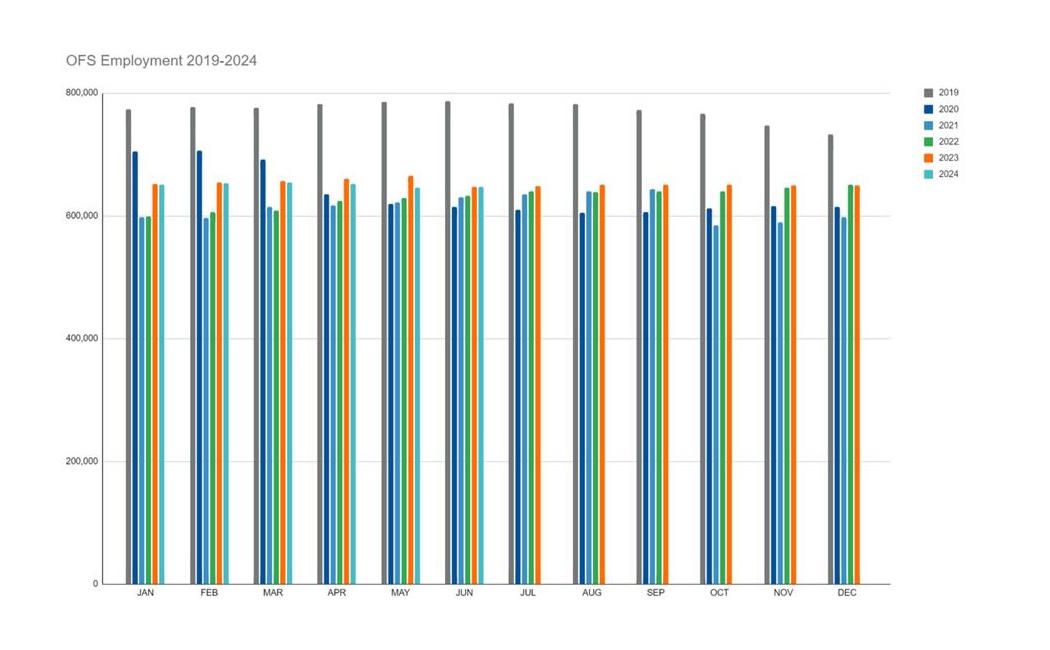The oil and gas industry is focusing on environmental, social, and corporate governance issues (ESG) and reducing emissions and waste.

Transparency and accountability are part of today’s reality for the oil and gas industry. The public expects organizations to shoulder their weight for social responsibility, energy efficiency, and environmental sustainability. Climate change is no longer just a theory. It’s a fact, with examples of its impact being felt throughout the business world and society.
The industry is particularly under the microscope because of its contributions to greenhouse gas emissions. The US Environmental Protection Agency (EPA) estimates that transportation accounts for about 27 percent of all emissions. The onus is clearly on this sector with the goal of zero waste.
Environmental sustainability accountability in the oil and gas industry
The industry is keenly aware it must focus on environmental, social, and corporate governance issues (ESG). A groundswell of pressure exists within it and from the general public to drive actions toward addressing these concerns.
For example, the American Petroleum Institute (API) has partnered with the International Association of Oil & Gas Producers (IOGP) and IPIECA to foster accountability with its Sustainability Reporting Guidance for the Oil and Gas Industry. Environmentally-friendly practices that aim to reduce the impacts of climate change are the centerpiece of this initiative.
This measure comes on the back of several actions already taken by the industry, such as the IPIECA 2018 role as an Associate Signatory to the Methane Guiding Principles to reduce emissions and IOGP succession planning with its effort toward decommissioning offshore structures.
It’s evident in the development of new technologies that address concerns about emissions, waste, water usage, and management systems for driving low-carbon initiatives. Navigating this evolving landscape is challenging for the industry.
Moving toward these goals threatens the sector’s continued growth. However, failure to do so also risks investment dollars as pressure mounts for the industry to act, especially given the potentially catastrophic consequences of unchecked climate change. To become more sustainable, it must understand how it affects the environment.
Response to the environmental impacts of the industry
No energy source is completely clean and without environmental risks. However, the ecological impacts breach several areas. They include the socio-environmental issues of fresh water, public health, and local effects of extraction and offshore production. There are also eco-efficiency factors involving drill cuttings, flaring, and venting.
Diversification within the industry has been a driving factor in its response. Instead of fighting renewable energy, it has embraced advances in hydrogen, biofuels, and other potential revenue streams that align with consumer needs and demands. SGP BioEnergy announced the development of the world’s largest advanced biorefinery, with production slated to begin in 2025.
Oil and gas driving factors
These facts show the complexity of the issues facing the industry. Of course, climate change is the main driving factor, given its global impact. Other considerations include balancing risk management with sustainability and energy transition concerns. These components have compelled the industry to diversify and develop creative business models to address this challenging landscape.
Change within the industry isn’t enough to move toward zero waste. The evolution of the infrastructure and the power grid also remains a priority. It’s clearly on the radar of investors with the National Grid Partners (NGP) decision to back three startups addressing these concerns while focusing on the environmental and social implications.
The good news is the conversation includes environmental sustainability at the forefront, with 79% of industry executives citing it as a significant concern in a recent SAP and Oxford Economics survey. It’s not surprising, given public pressure to move in this direction. The other push comes from the changing workforce.
As younger employees advance into leadership roles, they bring a new culture of accountability and social responsibility that prioritizes these goals. Sustainability will become a critical component of an organization’s objectives and mission.
Ways the Oil and Gas Sectors Are Prioritizing Sustainability
The diversification of the industry is an excellent example of this sustainability goal. It has made a substantial impact on waste, although it is only the beginning.
1. Reducing greenhouse gas (GHG) emissions
US greenhouse gas (GHG) emissions have decreased from the year 2000 highs. It bears mentioning that the oil and coal figures for 2020 were lower than during the 1973-1974 oil embargo. Advancements in technology have spearheaded these declines. Companies are operating more efficiently and reducing their environmental impacts.
2. Investment in green technology
The transition to renewable energy isn’t going to happen overnight. The industry to work together to reduce the impacts of climate change. Companies such as Occidental Petroleum have committed to green technology for capturing carbon dioxide, combining reductions in greenhouse gas emissions with these investments.
3. Preventing pollution
While many initiatives emphasize future impacts, others focus on the here and now with pollution prevention. Government regulations and oversight have driven these measures that make economic sense, particularly in light of the volatility of the energy market and supply chain issues. The partnership between Alliance North America (ANA) and SPOC Grid Inverter Technologies is an excellent example.
The development of their Energy Boss mobile power unit can reduce fuel consumption by up to 80 percent and, thus, lower its carbon footprint with this hybrid technology. Likewise, ExxonMobil has committed to decreasing its greenhouse gas emissions by up to 20 percent while supporting the continued development of low-carbon technology.
4. Reducing water usage
Water usage is in the spotlight, with recent wildfires in the West and an ongoing drought fueling these events. The industry itself is a stakeholder in the vulnerable global economy. Sustainability isn’t the only environmental concern. Conserving resources is imperative for future growth.
Hydraulic fracturing is the proverbial double-edged sword, requiring thousands of gallons of water, resulting in a chemical-laden effluent. The solution is to reclaim and recycle water. Companies leading the way include Pioneer Natural Resources’ polyethylene pipe to reuse treated municipal wastewater and APA Corporation’s commitment to reduced fresh water consumption.
The industry has risen to the challenge of making environmental sustainability its goal. It has made significant strides toward mitigating its negative impacts while aligning its mission with environmental, social, and corporate governance goals. Together, the global community can slow the effects of climate change. Leaders in the energy sector can help ensure a safer tomorrow.
– Downtown eCommerce Partners (DEP) is a CFE Media and Technology content partner.



